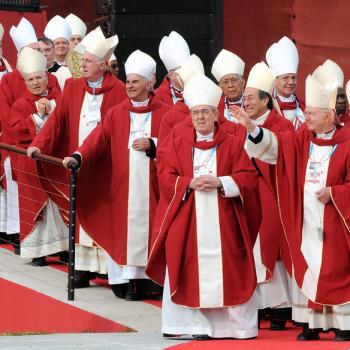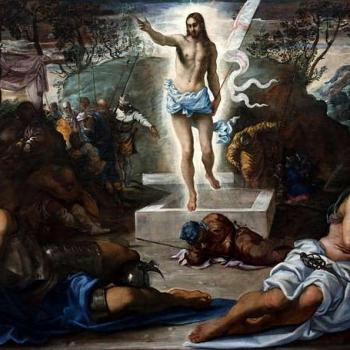I have finally finished Victor Hugo’s Les Misérables. I saw the movie and had earlier seen the play, but I realized that I had never read the novel, so I took on that project. I downloaded the free Kindle edition and started reading. It took me months and months. The paperback edition is some 1500 pages long. But it was one of my great reading experiences. Not only is Les Misérables a good book. It is a book that is good, and the goodness that it made me imagine was good for me.
Reading this novel is the opposite of internet style reading, that breezy habit of skimming along and skipping from one small block of text to another in accord with our impatient attention spans. Hugo’s novel goes slowly and relentlessly, like a glacier. His style is exhaustive, describing everything in the greatest depth. What took five minutes in the movie version–the Bishop’s dramatic act of grace to Jean Valjean–takes around a dozen chapters, as Hugo fills in completely the character of the Bishop, his backstory, his struggles with the Revolution, and the roots of his kindness. Hugo gives us a blow-by-blow description of the Battle of Waterloo just to establish that a minor character robbed the bodies of the dead. The effect of all of this, though, is to totally immerse the reader in the story.
The novel is about a man, Jean Valjean, who was convicted for stealing a loaf of bread and who spent years chained to the oars of a galley, a punishment that turned him into a hardened criminal. After his release, he stole again–from a child, no less–which would have sent him back to the galleys for life. But a Bishop shows him inexplicable grace, which moves him so much that he is converted and transformed, resolving to devote his life to showing similar grace to others. In the meantime, he is hunted by an obsessive police officer named Javert. The movie version gives just the broadest outline of what happens, there being many more incidents in the novel. Valjean makes a fortune in the nascent industrial revolution and throws it away, taking on new identities and living on the run as Javert keeps tracking him down. In the meantime, his fate becomes entangled with two women whom he rescues and devotes his life to helping, the prostitute Fantine and her daughter Cosette. We follow Valjean to a new generation, as Cosette falls in love with a young man with his own complex story who gets caught up in one of the other French revolutions that followed the big one of 1789.
A characteristic of 19th century novels, found for example in Dickens, is the “intrusive narrator.” The storyteller–in this case, Hugo–is constantly commenting upon the action and the characters that he is describing, launching into long digressions and philosophical reflections. Hemingway pretty much killed that convention in favor of direct unmediated narration, so modern readers aren’t used to that. But I found Hugo’s meditations quite intriguing. He was definitely a revolutionary, praising the French uprising and its values of equality, liberty, and fraternity. He was also a Bonapartist, lauding Napoleon for casting down the feudal system and social oppression throughout Europe. Hugo believed in Progress. (There is a poignant, utterly ironic, passage in which Hugo looks fondly ahead to the 20th century, where, he thought, war and oppression would finally be done away with.) But Hugo, unlike other revolutionaries, believed in God. He thought that the new social ideas must be grounded in a transcendent morality and in spiritual reality. He was probably not completely orthodox in his theology. But his main character, Jean Valjean, was–responding to the Gospel, praying to Christ, going to Church, loving and serving his neighbors–and Hugo honors sanctity wherever he finds it.
What is striking about the book is the sense of goodness that it evokes. When I read for pleasure, I typically fill my imagination with murders (from murder mysteries), organized slaughter (from military histories), and various kinds of darkness, cynicism, and satire (from contemporary fiction). Here, though, the author was making me feel the full range of compassion. Not just by showing people in wretched conditions but by giving me a sense of knowing and understanding them. The title does not just mean “the miserable,” a word in English that just refers to suffering. The root of the French-derived word comes from the term for “mercy.” The word means something like “the ones who need mercy.” That would apply to all of us. And a good book can give us practice in realizing that.












